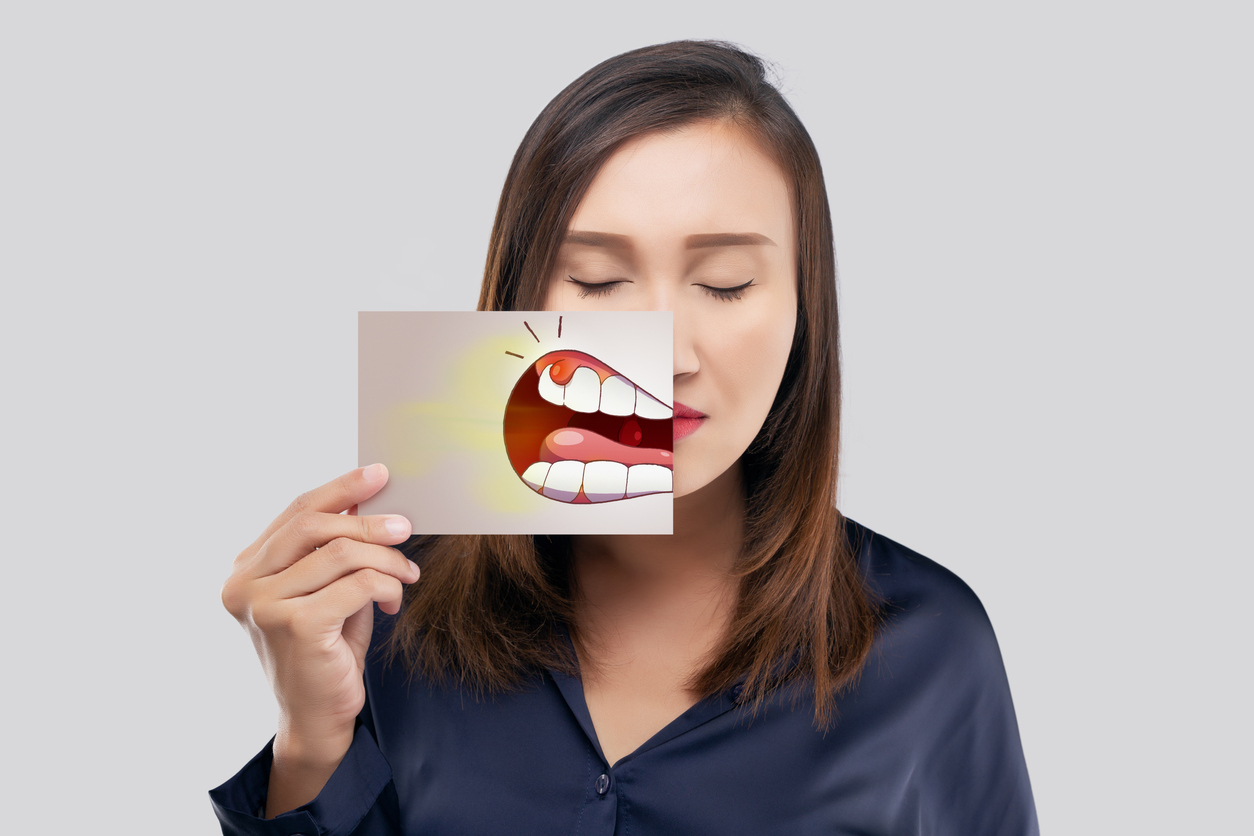
Gum Disease
Some people think that good oral hygiene just means caring for your teeth, but your gums need care, too.
Gum tissue includes more than just the pink flesh that fits around each tooth. Beneath the soft part of the gums are tissues that hold your teeth in place. There are strong bands, called ligaments, that connect your teeth to your jawbone as well as the roots of your teeth.
What Puts You at Risk for Gum Disease
There is a film of bacteria that covers your teeth. This film, known as plaque, is what you are trying to remove by brushing and cleaning between your teeth. When it is left on the teeth due to poor or incomplete care, the plaque can settle along the gumline and between the teeth and harden. Once it has hardened, it provides a space for more plaque to collect.
Early Gum Disease
In the early stages, plaque just affects the gum tissue you can see. This pink tissue should fit snugly around each tooth. If you do not stay on top of plaque with regular home and professional dental care, plaque can damage this tissue. You might notice that your gums become red and swollen. They may start to pull away from the teeth and bleed when you brush. This stage is called gingivitis.
Some habits like smoking or chewing tobacco, long-term conditions like diabetes, or some medications also can increase your gingivitis risk. Talk to your dentist about your lifestyle habits, health, and medications you take (both prescription and over-the-counter ones).
Advance Gum Disease
Advanced gum disease is called periodontitis. This is gum disease that has spread beneath the soft gum tissue, attacking the ligaments and even jawbone attachments. The ligaments and jawbone hold your teeth in place. When these are broken down by plaque, your teeth may drift out of place. If left untreated, periodontitis can damage the connection your teeth have with your jawbone. This is serious. Damage to the jawbone may cause you to lose your teeth.
Protecting Your Gums
Gingivitis, the early form, of gum disease may be reversed by good oral care such as:
- brushing twice a day with a fluoride toothpaste (which will help prevent cavities)
- cleaning between your teeth daily with floss, a water flosser, floss threaders, or other products made for this purpose, like wooden dental sticks or flexible brushes
- seeing your dentist regularly for a professional cleaning
Treating periodontitis calls for professional help. At your dental visits, your dentist may check the health below your gumline by sliding a probe beneath the gums at sites around your teeth. This allows the dentist to measure the attachment levels. If the probe show damage to the attachment, your dentist may recommend a deep cleaning called scaling and root planing.
Scaling and root planing is usually performed to remove the hardened plaque from beneath the gumline. Once this plaque is removed, the tissues holding the teeth in place will be smoothed. Cleaning and smoothing the affected areas make it easier for the damaged attachments to heal. Once you have had periodontitis, you may need to see the dentist more frequently.
If you have gum disease, your dentist may prescribe a special toothpaste or mouthrinse to protect your gums.
Gum disease usually is not painful. If you do not watch for the early signs – red, puffy, bleeding gums – it may become serious. Left untreated, gum disease can allow your teeth to move out of place or even lead to tooth removal. Good daily care of your teeth as well as regular visits to your dentist may help prevent gum disease.
Leave a reply →